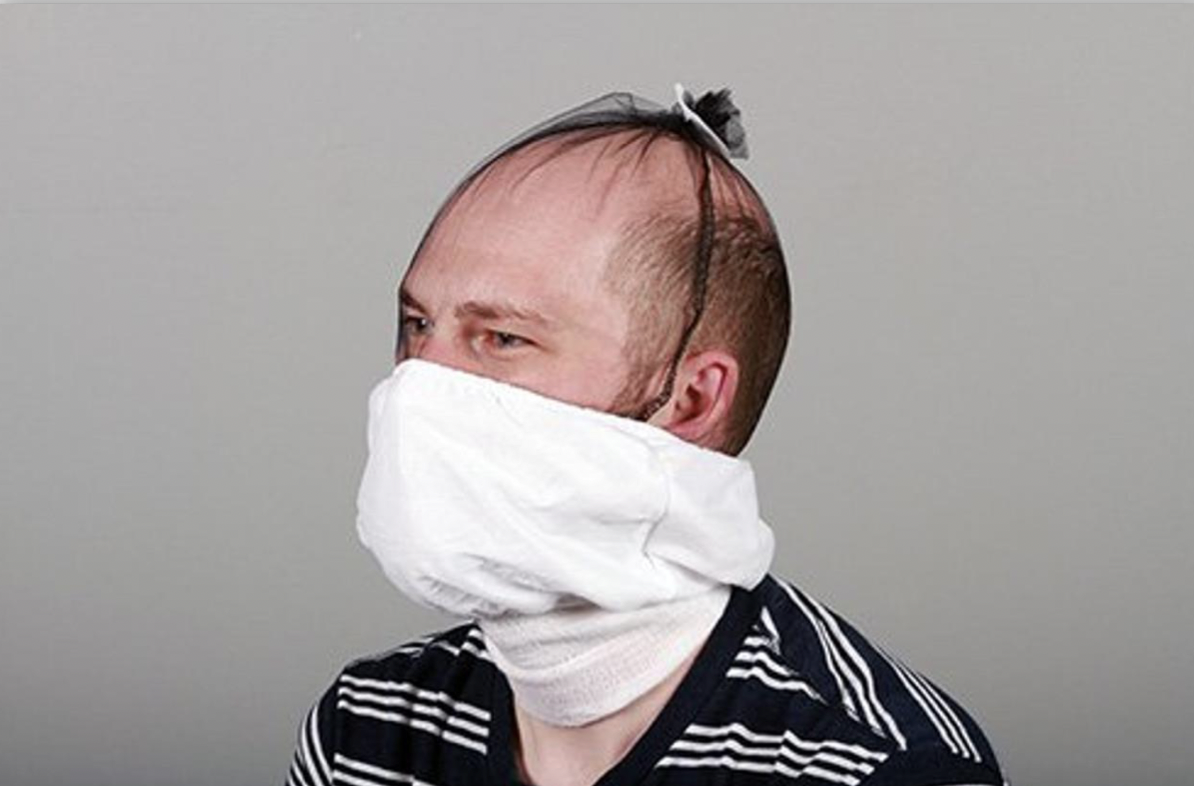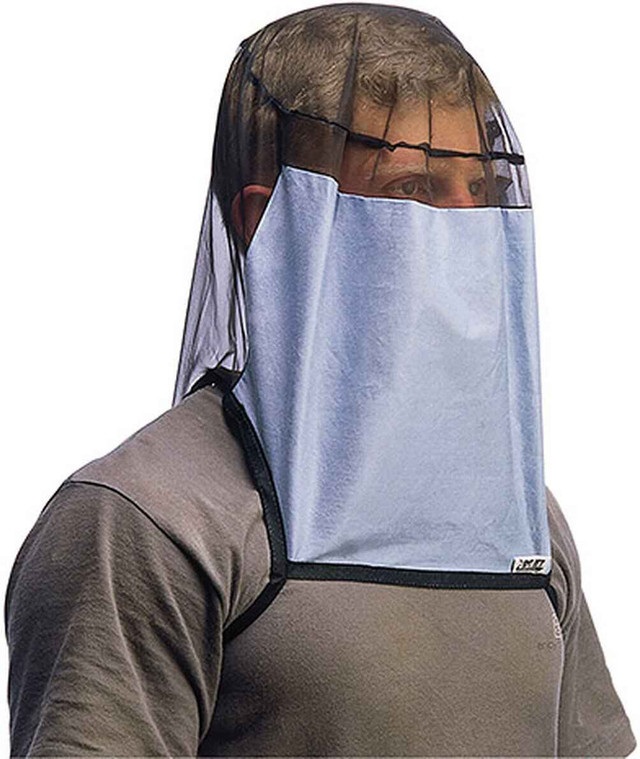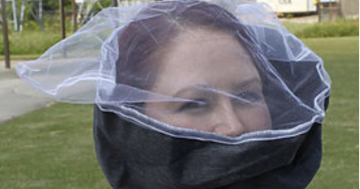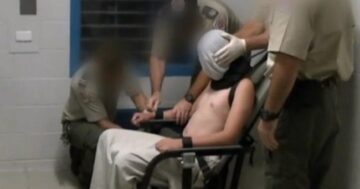
The Safariland ‘TranZport Safety Hood’ was the main spit hood utilised by ACT Policing and the AFP. Photo: Screenshot.
ACT Policing, the AFP and its union have long defended the rare use of spit hoods, but an internal review found the main argument – to protect officers’ physical wellbeing – wasn’t medically justifiable.
Spit hood use was discontinued in the Territory and by the AFP in April, with the full reasons behind the decision obtained by Region under Freedom of Information legislation.
An internal review commissioned by AFP Assistant Commissioner Scott Lee recommended either the use of spit hoods be discontinued entirely or at least paused until the AFP addressed identified training and governance issues around their use.
The review found there was “little evidence” to support the argument that spitting and biting assaults posed a “serious physical risk” to the victim, citing medical publications that assessed the chances of contracting Hepatitis B and C, and HIV/AIDS, as “nil to very low”.
“[The AFP’s Chief Medical Officer advises] the use of spit hoods could not be justified on medical grounds,” the review stated.
“Prophylaxis [preventative treatments], vaccination, and appropriate PPE were the more effective countermeasures.”
ACT Policing officers are already required to be vaccinated against a range of diseases, including Hepatitis B.

ACT Policing officers also had access to the Safariland Spit Net, although it’s unclear if it was ever used in the Territory. Photo: Screenshot.
The review found the main risk of spitting or biting assaults was to an officer’s mental health rather than their physical health.
It acknowledged the psychological impacts could be significant, mainly due to the uncertainty around whether an offender carried a transmissible disease.
To combat this, it was suggested police officers be educated on the scientific evidence so they have a “better understanding of the real risks” of disease transmission from spitting and biting.
In place of spit hoods, the review recommended the AFP approach the Commonwealth and ACT Governments to legislate the mandatory testing of people who spit or bite police to see if they impose an infection risk and to increase the penalties for this type of assault in an attempt to discourage it.
The AFP union submitted the maximum penalty for assaulting a frontline community service provided should be increased from two years to four years and upgraded to “aggravated assault”, particularly if a person weaponised spitting and was known to carry a transmissible disease.
An alternative suggested by the ACT Human Rights Commission was for free, priority testing of assaulted police officers instead of mandatory testing of offenders, arguing the Human Rights Act stated there was a general right for a person “not to be subjected to medical treatment (including testing) without consent”.
An ACT Government spokesperson confirmed discussions with ACT Policing on the recommendations in light of the AFP’s decision to discontinue the use of spit hoods.
“[The government] is undertaking preliminary consultation in relation to the proposal for mandatory testing of people who spit on police,” they said.
Other issues found with ACT Policing’s use of spit hoods included no formal or informal training program for their use, reliance on instructions printed on the packaging of spit hoods, and any training relating to spit hoods seemed to be about positioning of officers rather than the risk factors associated with their use or issues an officer should consider prior to use.
It was also noted spit hoods were rarely used in the ACT, and their discontinuation would have “no effect” on ACT Policing’s operations.
Recommendations were made on improving governance and training around spit hoods; however, these are no longer relevant given their use has been discontinued.
It was also recommended the AFP conduct a “whole of organisation” risk assessment in relation to spitting and biting incidents, with its Medical Services arm to also assess the medical and psychological risks associated with these types of assaults.
The cases for and against the use of spit hoods have been an emotional one in the ACT.
Police officers have previously detailed their stress waiting for test results after being spat on by offenders, fearing they could have contracted a disease.
The review noted between the first quarter of 2020 and the second quarter of 2022, there were 137 spitting or biting incidents reported to AFP Medical Services. However, this data did not distinguish between deliberate assault or accidental or environmental exposure. It’s believed biological exposure incidents are under-reported.
Reported incidents included a teenager who became violent with officers and a woman who was arrested after police executed a search warrant.
The Territory was reported to the United Nations’ anti-torture watchdog following renewed calls for spit hoods to be banned in early 2022.





















